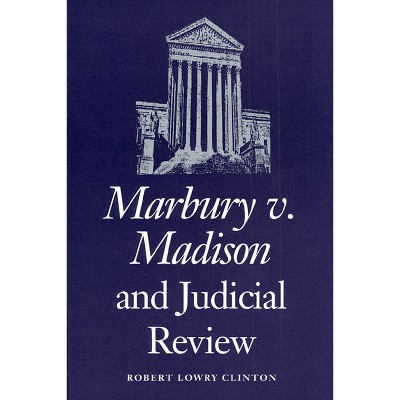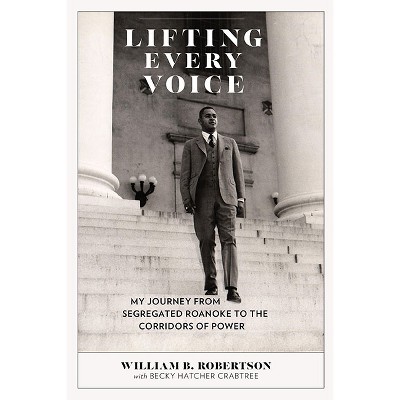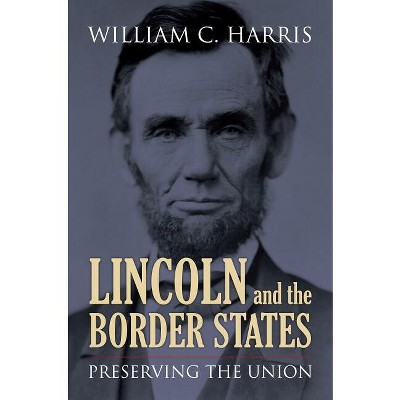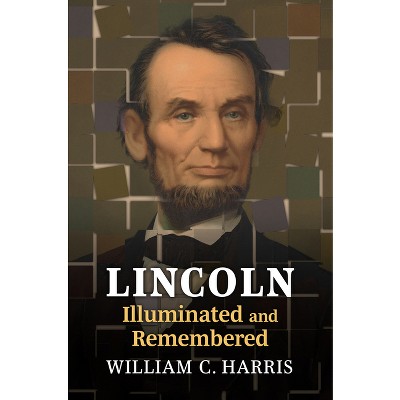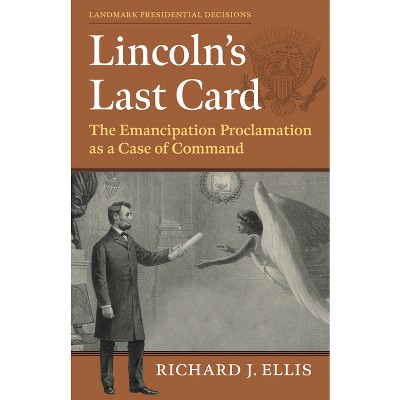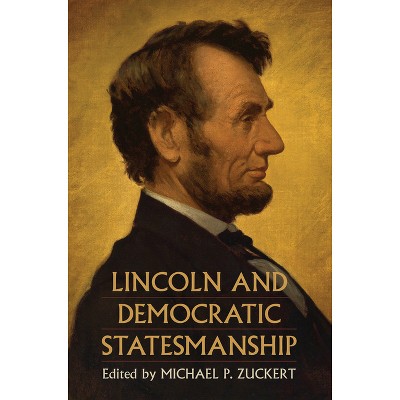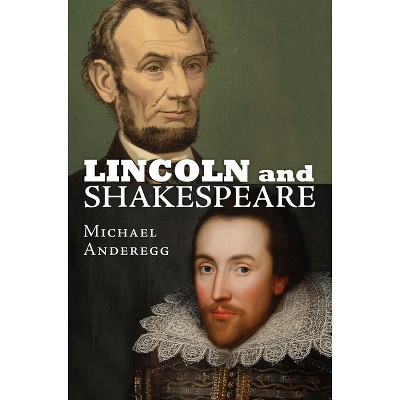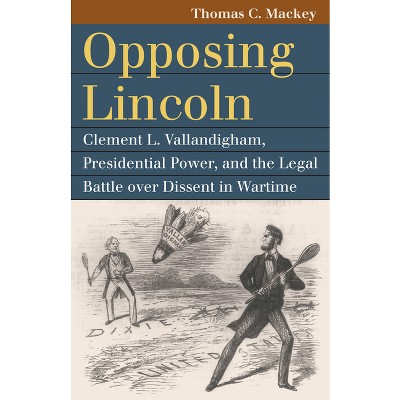Sponsored

Two Against Lincoln - by William C Harris (Hardcover)
In Stock
Sponsored
About this item
Highlights
- Reverdy Johnson (1796-1876), Maryland senator, and Horatio Seymour, Democratic governor of New York, were two influential opponents of Abraham Lincoln and the Republicans during the Civil War.
- Author(s): William C Harris
- 272 Pages
- History, United States
Description
About the Book
The book is an account of two influential opponents of Lincoln and the Republicans during the Civil War era, Revardy Johnson, conservative Unionist senator of Maryland, and Horatio Seymour, Democrat governor of New York during the Civil War and presidential candidate in 1868.Book Synopsis
Reverdy Johnson (1796-1876), Maryland senator, and Horatio Seymour, Democratic governor of New York, were two influential opponents of Abraham Lincoln and the Republicans during the Civil War. But unlike the Copperheads, they staunchly supported the war to suppress the rebellion. The story of these two figures of the loyal opposition by Lincoln Prize-winning author William C. Harris provides a new way of understanding critical controversies relating to the purpose of the Civil War, its conduct, emancipation, white racial opinion, loyalty, military conscription, and civil liberties. Johnson, a distinguished lawyer, former Whig, and conservative Unionist, did not believe that the secessionist states had left the Union, an idea with broad implications for post-war reconstruction. Like Seymour, he opposed Republican efforts in Washington to end slavery, assuming such a policy would backfire against the Union. However, Johnson in 1864 spoke in favor of the Thirteenth Amendment to abolish slavery. Before the war, Seymour supported Stephen Douglas's popular sovereignty policies, allowing the territories to decide whether or not to permit slavery, and during the war he opposed any tampering with slavery. Two Against Lincoln explores how these two men negotiated issues of emancipation, reconstruction, and reconciliation, all while navigating the roiling currents of partisan politics. The book includes illuminating accounts of the framing of the Fourteenth Amendment in 1866, the ephemeral National Union (Democratic) Party of 1866, the role of Senator Johnson in the approval of the military reconstruction acts of 1867, the impeachment of President Andrew Johnson, and, finally, the presidential election of 1868 in which Seymour as the Democratic candidate did better than expected against war hero U. S. Grant. Building on the author's award winning work on Lincoln and the border states, Two Against Lincoln illustrates the complexity of political divisions in the Union states, as embodied in two powerful, controversial leaders of the time.Review Quotes
"A worthy book. . . . a significant step toward understanding the elusive Democratic Party during the Civil War."--Journal of Southern History
"Harris has produced a revealing look at Civil War politics and constitutional interpretation."--Choice
"Remarkably well-researched and elegantly written. . . . This is a very important book, one that contributes an enormous understanding to the forces that drove many to oppose the Union's cause during the Civil War."--Civil War Book Review
"Horatio Seymour, a conservative Democrat, and Reverdy Johnson, an old line Whig, may never have met or corresponded, but they spoke with one voice on many of the most crucial political and constitutional issues of the Civil War and Reconstruction. In this inspired, intriguing, and finely nuanced exploration of their parallel careers, William C. Harris provides a fresh and revealing way to understand the "loyal opposition" that challenged Abraham Lincoln and his Republican party."--Daniel E. Sutherland, Distinguished Professor of History, University of Arkansas
"As leaders of the loyal opposition to the Lincoln administration, Senator Reverdy Johnson of Maryland and Governor Horatio Seymour of New York supported the war for the Union but opposed Republican "hard war" and abolition policies. Their continued resistance to radicalism during Reconstruction put them on the wrong side of the historic achievements of the 1860s. But William C. Harris helps us understand these achievements more clearly in this penetrating study of the path not taken."--James M. McPherson, author of The War That Forged a Nation: Why the Civil War Still Matters
Shipping details
Return details
Trending Non-Fiction





